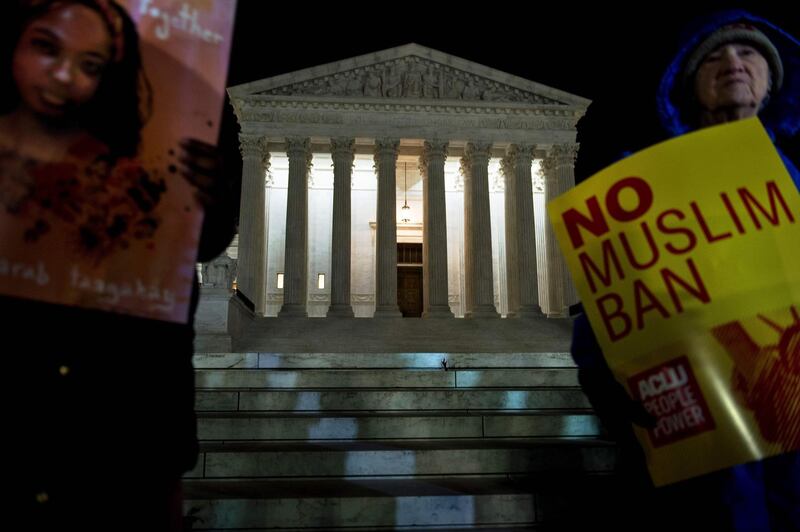The U.S. State Department said it began fully implementing President Donald Trump’s travel ban targeting six Muslim-majority countries on Friday, four days after the Supreme Court ruled the order could be enforced while legal appeals continue.
Mr Trump’s order, which calls for “enhancing vetting capabilities” at U.S. embassies and consulates overseas, directs the departments of State and Homeland Security to restrict the entry of people from six Muslim-majority countries - Chad, Iran, Libya, Syria, Somalia and Yemen - as well as from Venezuela and North Korea.
The State Department said in a statement on Friday that no visas would be revoked under the new vetting procedures. It said the restrictions were not intended to be permanent and could be lifted as “countries work with the U.S. government to ensure the safety of Americans.”
_________________
Read more
[ Trump's travel ban 'does not match the evidence', says global terror monitor ]
[ Campaigners vow to fight Trump's travel ban ]
_________________
Mr Trump promised as a candidate to impose “a total and complete shutdown of Muslims entering the United States” and his effort to implement a travel ban has run into repeated legal challenges since he first announced it a week after taking office.
The current ban is the third version from the administration. Lower courts allowed the provisions covering North Korea and Venezuela to go into effect.
Challenges continue for the six predominantly Muslim countries, charging that the ban discriminates on the basis of religion in violation of the U.S. Constitution and is not permissible under immigration laws.
The Supreme Court on Monday granted the administration’s request to lift two injunctions that partially blocked the ban. The decision allows the restrictions to go into force, even as legal challenges continue in lower courts. Two liberal justices dissented.






